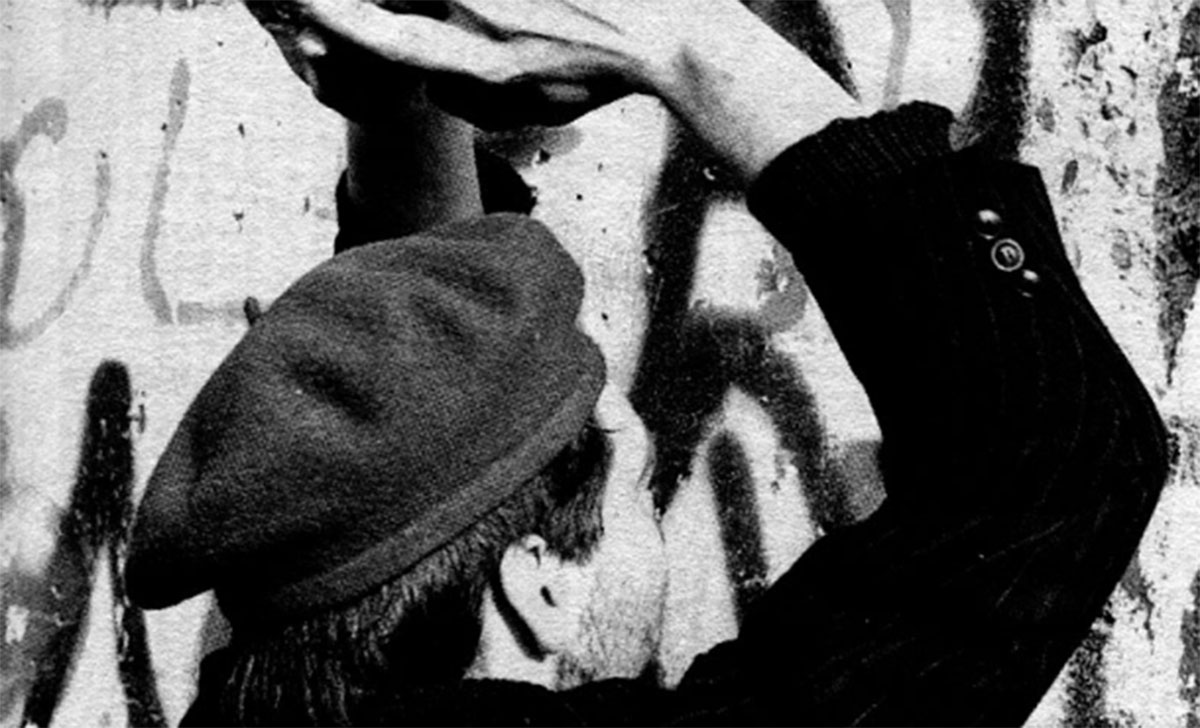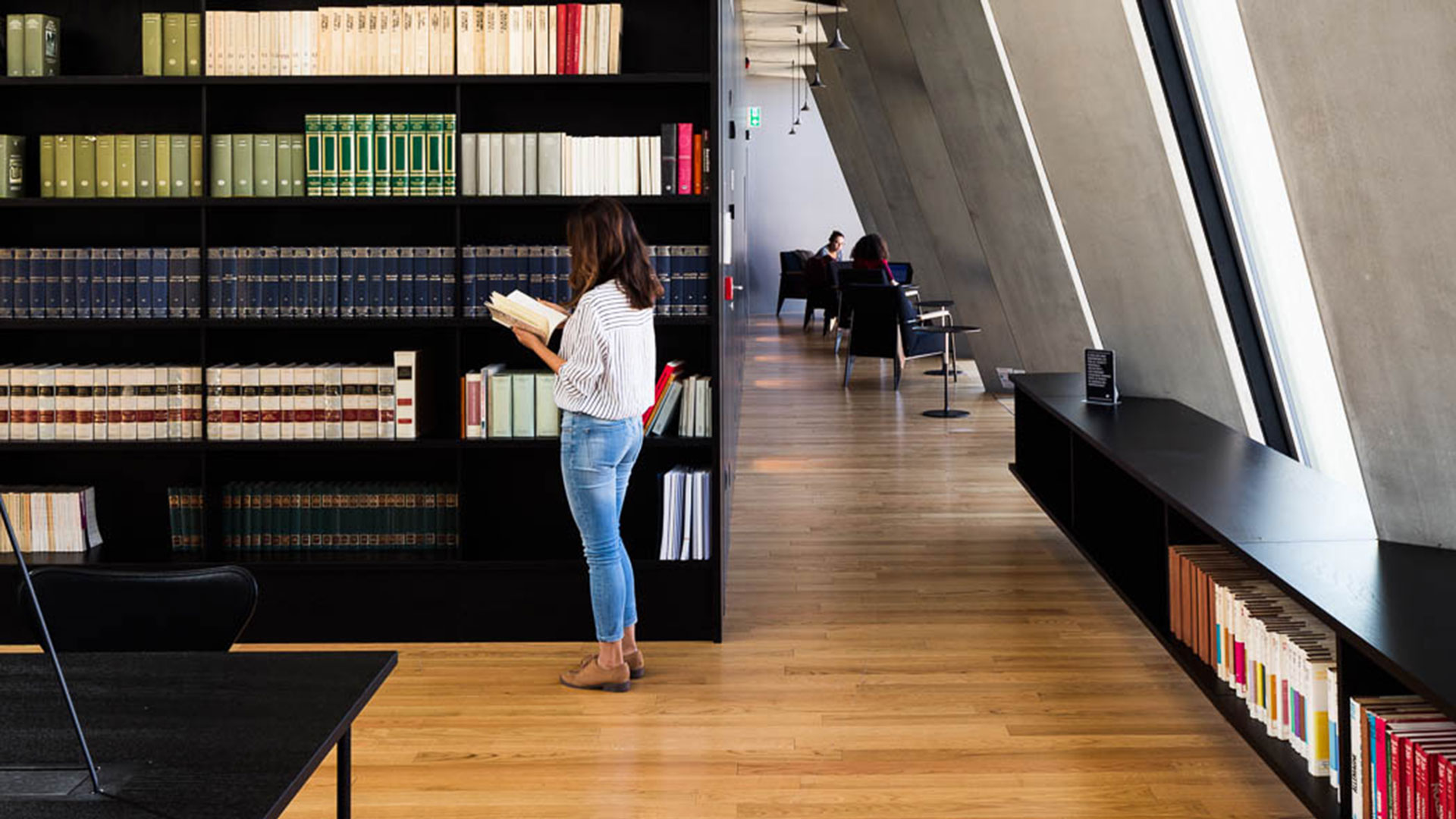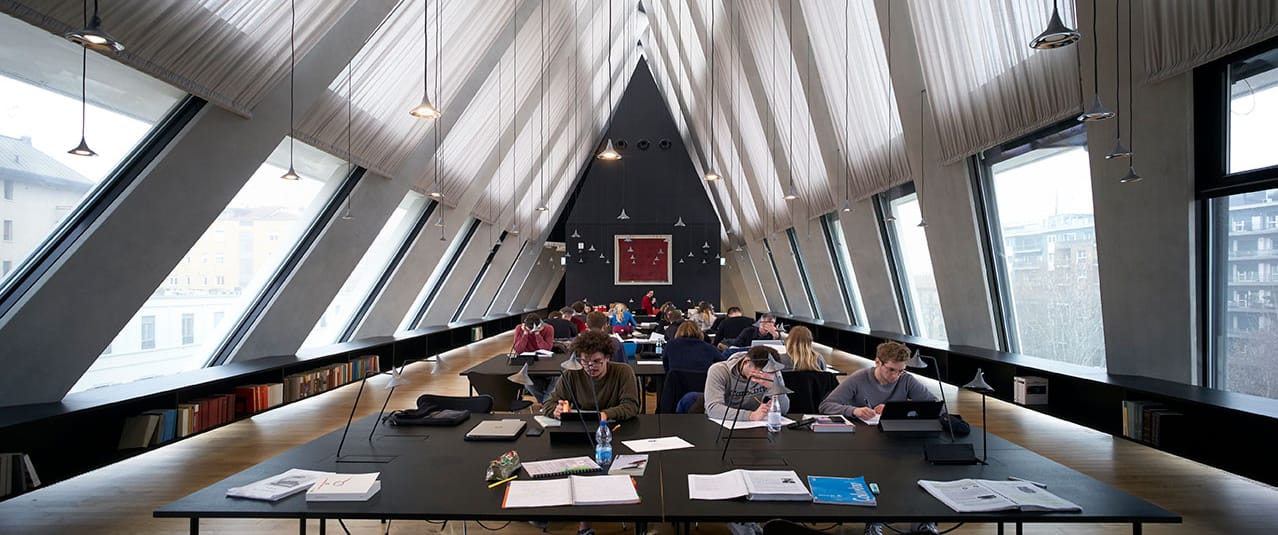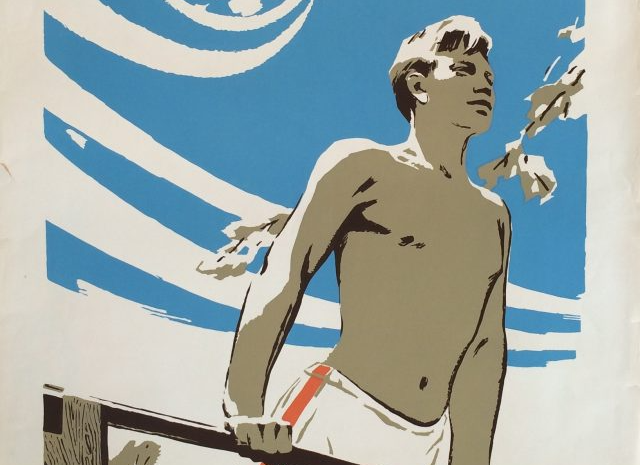In our library, we preserve over 200,000 volumes and journals, organized into sections by major national areas and the political-social seasons of each country’s history.
You can access the documents on-site only, at Viale Pasubio 5, in Milan, and external or interlibrary loans are not permitted. However, you can request digital reproductions in compliance with copyright laws at the address: reference@fondazionefeltrinelli.it.
Search and consult
SBN Catalogue – Lombardy Region
The library of the Giangiacomo Feltrinelli Foundation has been part of the National Library Service (Servizio Bibliotecario Nazionale – SBN) since 1989 and is a member of the Lombardy regional SBN network.
Heritage assets
- Journals: 17.500
- Current journals: 109
- Monographs: 200.000

Bibliographic collections
Our most substantial collections cover the political and economic thought of the Enlightenment thinkers in France, Italy, Germany, and England, as well as the Italian Risorgimento, with a particular focus on economic discussions. Others encompass the social dynamics during the First Industrial Revolution in England and the revolutions of 1848 in Europe.
Furthermore, there are monographic and serial collections related to the ideas of Marx and Engels, the workers’ and socialist movements from the 19th to the 20th century in various countries, the Paris Commune, pre-revolutionary and revolutionary Russia, European fascisms, Spain from the Second Republic to the Civil War, the events of the Prague Spring and Solidarity, and the political and social transformations in North America, Latin America, Africa, and Asia in the 20th century.
The library also houses 4,500 ancient and rare works published between the sixteenth and the first half of the nineteenth century. Among these are the 1518 edition of Thomas More’s ‘Utopia’, early or rare editions of works by Hugo Grotius, William Petty, John Locke, Thomas Hobbes, Francesco Guicciardini, and Pierre Bayle.

Reproduction, even partial, of the content of the website on other web pages, print and digital publications, CD-ROMs, and other editorial products is prohibited without the prior authorization of the Giangiacomo Feltrinelli Foundation.
Users accessing the site are obliged to be familiar with and comply with the laws regarding access to data and documents and in particular with the regulations in the Code of Cultural Heritage and Landscape (Legislative Decree no. 42/2004); Code of Personal Data Protection (Legislative Decree no. 196/2003); and the Code of Ethics and Good Conduct for the Processing of Personal Data for Historical Purposes (Provv. Garante protez. dati pers. n. 8/P/2001).

Digital library

We periodically enrich our digital library, making larger portions of our bibliographic heritage accessible. This effort is guided by two objectives: preservation and dissemination.
Digitizing sources indeed means safeguarding the original documents, reducing wear and tear on physical materials. In parallel, the virtual archive allows us to share the richness of the heritage with a broader audience.
To facilitate navigation through the content, we have conceived reading paths that stem from research projects and immerse readers in the narrative of a piece of history evoked by the archival materials.
Italian Risorgimento
The Digital Library of the Italian Risorgimento is a comprehensive archive that encompasses a collection of historical materials, including letters, manuscripts, scores, and photographs.
To facilitate the exploration of this heritage, the library offers five guided paths that illuminate different aspects of Italian society, including politics, economics, literature, and music. These paths trace the evolution of the idea of the Italian nation from the 19th century to the formation of the unified state.
The paths:
Becoming a Nation
The languages of national identity
Making Italians
Politics and society from Garibaldi to mutualism
Building a Nation
Economists of the Italian Risorgimento
Being Italians
Knowledge and economic development
The “other Italians”
Anarchists, socialists, catholics and popular culture

The Great Transformation: 1914-1918
We have digitized over 120,000 pages of our heritage to provide an immersion into the ideological, political, economic, cultural, and social antecedents of the Great War. Five Great Transformations and three paths through monographs, serials, and audio materials comprise the corpus of digital objects.
Great Transformations:
Homeland
Identity, borders, nations
Mobilization
Everyone at war, no one excluded
Endless wars
The wounds of the post/war period
Industry
Producing for the Great War
Citizens of the world
Between nations and Europe
Other paths:
Journals
Paper war
Music
The notes of the Great War
Political movements
The parties in the Great War

Beyond the border
On the occasion of the centenary of the October Revolution, we have explored the complex relationship between Russia and Europe, retracing its history through monographs, periodicals, and iconographic testimonies.
The paths:
Ideas
The trigger of the Revolution
Economy
Top-down modernization
Propaganda
Educating the community

